How to feel full on a vegan diet or after a plant-based meal. Here you’ll find a registered dietitian’s tips to creating filling and satisfying vegan meals and snacks.
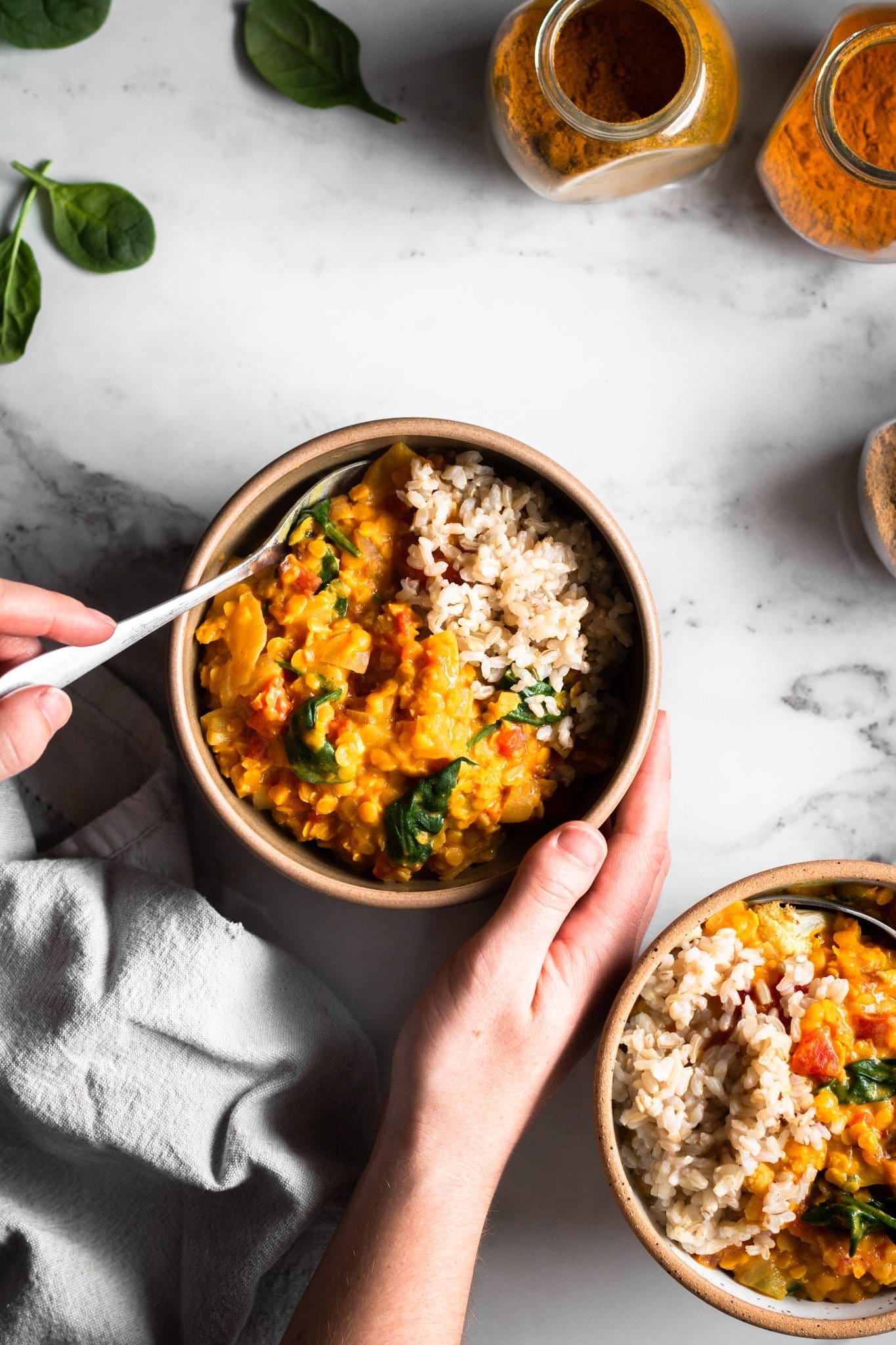
Do you get hungry soon after eating a vegan meal? Or do you constantly feel hungry as a vegan? Here are my tips to feel full and satisfied as a vegan (or after a vegan meal).
These are not your restrictive diet tips to feel full while trying to eat less. Tips such as eating gum or drinking tea to feel full and distract yourself from hunger are harmful and problematic in many ways. Instead, these tips are focused on feeling full and satisfied as a vegan, while eating foods that you enjoy, without restrictions.
The Difference Between Full and Satisfied
Feeling physically full after a meal is not always equivalent to feeling satisfied. You can feel physically full from eating enough food, while feeling dissatisfied and craving more. This happens when you ignore your cravings and eat foods that you don’t enjoy. To feel full and satisfied, it’s important to eat enough and eat the foods that you want in that moment. The tips below will help you feel both full and satisfied as a vegan (or after a vegan meal).
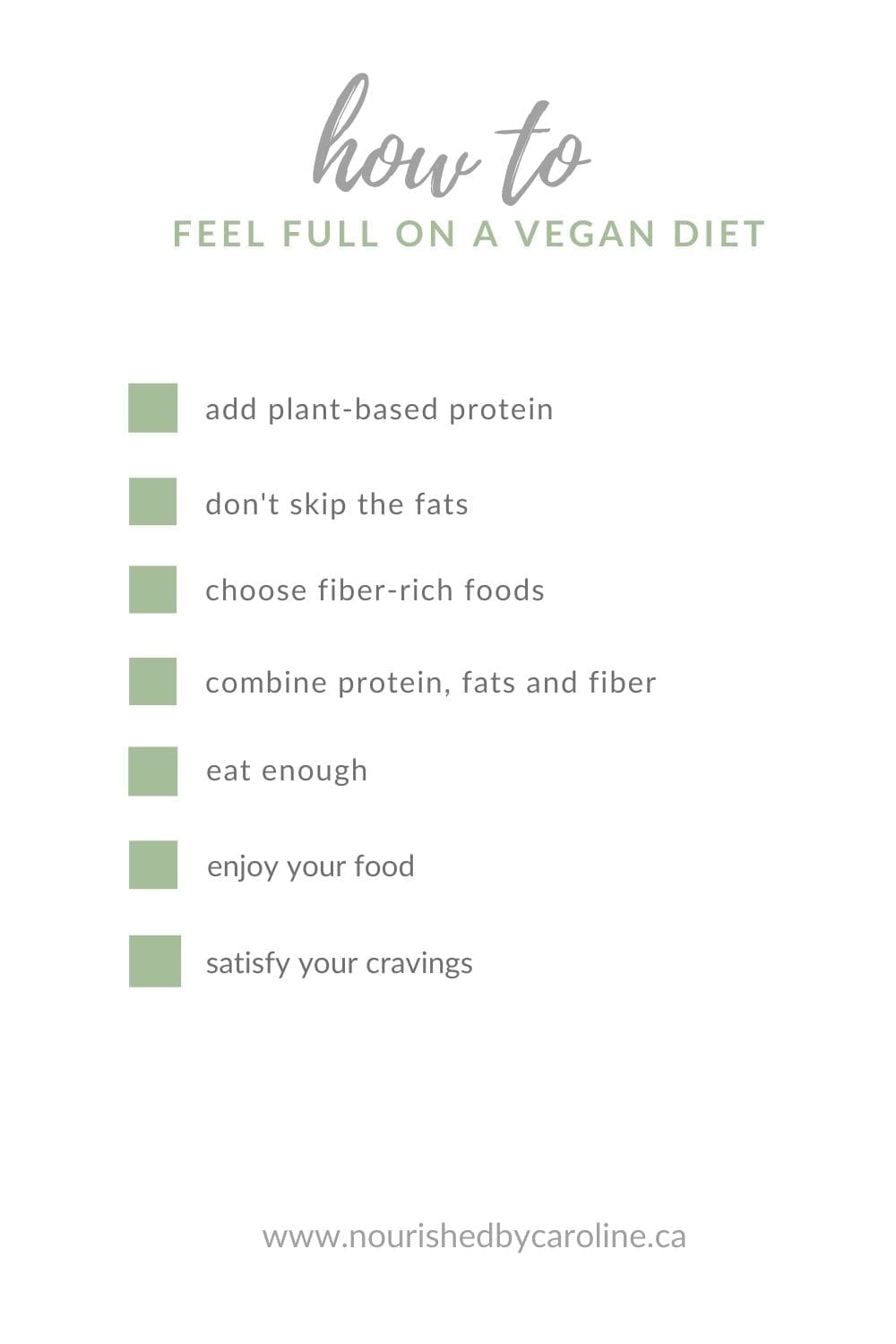
Tips to Feel Full as a Vegan
Add Plant-Based Protein
Protein helps us feel satisfied and full after our meals. If you find yourself being hungry soon after eating, you might want to try adding more protein to your meals!
And yes, it is possible to get enough protein on a vegan diet. It’s simply a matter of learning what are the best vegan sources of protein, how to use them and being mindful of eating some of those foods daily.
Try to aim for 3-4 servings of legumes per day to help you meet your protein needs. This includes tofu, tempeh, beans, lentils, peas, soy milk and more. You can also get protein from nuts, seeds, nut and seed butters, whole grains and more. That being said, aiming to get legumes at most meals will help you meet your protein needs more easily.
For more information about vegan protein sources and how to use them, check out this post.
Don’t Skip the Fats
The low-fat/oil-free vegan trend is not very helpful in promoting satiety and satisfaction for plant-based eaters. Not only does it add unnecessary restrictions, but it will likely leave you feeling hungry after your meals.
There’s no reason to fear fats. By incorporating healthy unsaturated fats to your diet, you’ll feel more satisfied after your meals and you’ll be able to create more delicious and flavorful meals. Plus, fats help us absorb fat-soluble vitamins!
Try cooking your vegetables with a drizzle of oil to promote satiety and help your body absorb fat-soluble vitamins. Other options could be to add avocado on top of your salad or casserole, spread nut or seed butter on your toasts or snack on nuts and seeds!
Choose Fiber-Rich Foods
Fiber offers many benefits: It promotes satiety, it has benefits for the gut, it helps stabilize blood sugars and helps reduce cholesterol.
Vegan diets are generally higher in fiber than a typical omnivore diet, but it is possible to eat a lower fiber vegan diet. If you think your diet is lacking fiber, try increasing it by choosing whole grains most of the time. You can also increase your fiber intake by eating more fruits, vegetables, legumes, nuts and seeds.
Combine Protein, Fats and Fiber
As discussed in the last three tips, fats, protein and fiber are all important for satiety. To get the most out of these, try to create meals that combine all three. Add a source of healthy fats, plant-based protein and fiber-rich foods to most of your meals to help with satiety.
For more tips to make balanced vegan meals with protein, fats and fiber, check out this post.
Eat Enough
The most important tip for feeling full and satisfied: Eat enough. This might be an obvious one, but it’s possible to undereat on a vegan diet (or any diet), whether that’s your intention or not.
Make sure you’re meeting your energy needs by eating a variety of foods, eating regularly throughout the day and eating nutrient and energy dense foods. If you struggle to meet your energy needs as a vegan, try adding more fats to your diet. Fats will provide more energy per gram, compared to carbs and protein. As mentioned earlier, oil, nuts, seeds and avocados are all plant-based sources of healthy fats.
Snacks can also help you meet your energy needs. If you’re hungry between meals, try having a snack that contains protein and carbs, such as an apple with peanut butter, nuts with dried fruits, crackers and hummus, a fruit and protein smoothie or a cookie with soy milk.
Eating enough food every day will help you get the nutrients that you need to feel your best. Instead of focusing on cutting out foods, focus on adding nutritious foods to your diet.
Enjoy Your Food
Whether you’re vegan or not, it’s important to enjoy your food. If you force yourself to eat meals you dislike just because they’re “healthy”, you won’t feel satisfied after your meals. You might feel physically full, but as we discussed earlier, there’s a difference between feeling full and feeling satisfied. If your meals aren’t enjoyable, you will likely not feel satisfied and will leave the meal craving something more.
Make place in your diet for your favorite foods and make sure that you eat meals that feel good to you in that moment as much as possible.
Satisfy Your Cravings
Has this ever happened to you? You crave something sweet in the afternoon, but distract yourself to avoid eating. That craving continues to grow stronger and stronger to the point where you end up overeating or binging in the evening. Or maybe you were craving ice cream and tried satisfying the craving with something “healthier”, so you tried a smoothie. That didn’t satisfy your craving, so you end up eating the ice cream anyways (likely in a larger serving than you originally would have eaten).
It’s important to listen to your cravings and eat what you want in that moment – whether it’s something nutritious or less nutritious. All foods fit!
This includes cravings for sweets/salty treats AND cravings for specific meals. Some days you might crave a warm bowl of soup, some days it might be a hearty casserole, a light salad or fresh bread. Listen to what your body is currently craving and try to listen to those desires. By eating something you don’t want in that moment, you will end up feeling dissatisfied after the meal (as mentioned in the last point).
This information is intended for educational purposes only and is not meant to replace individualized nutrition or medical advice.

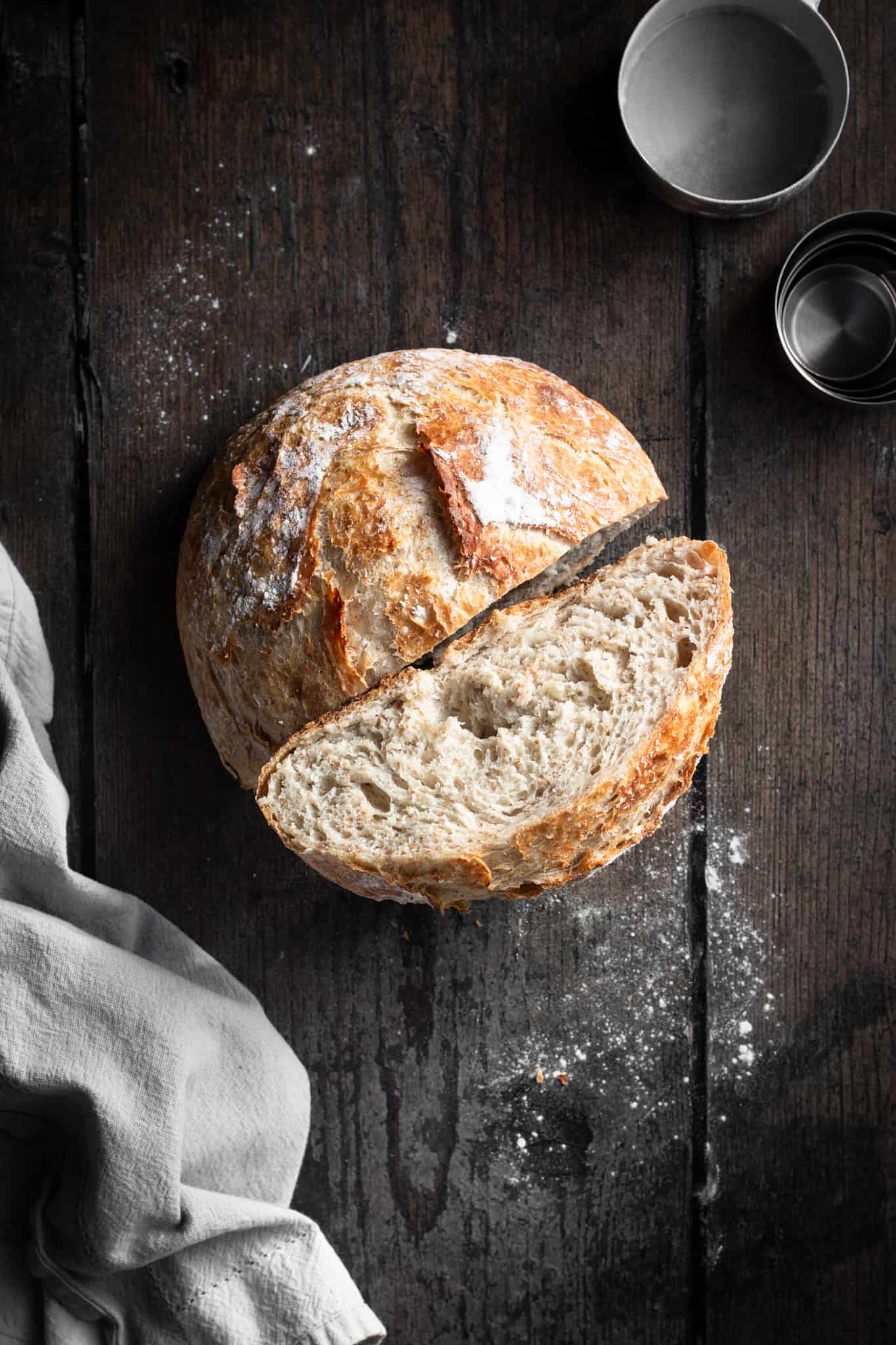
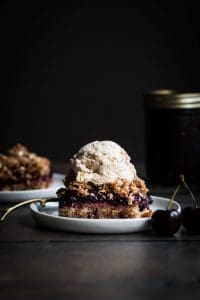
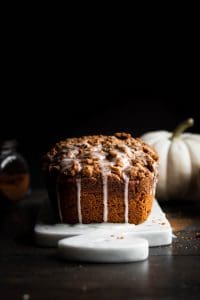
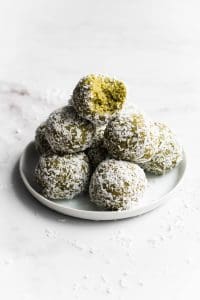
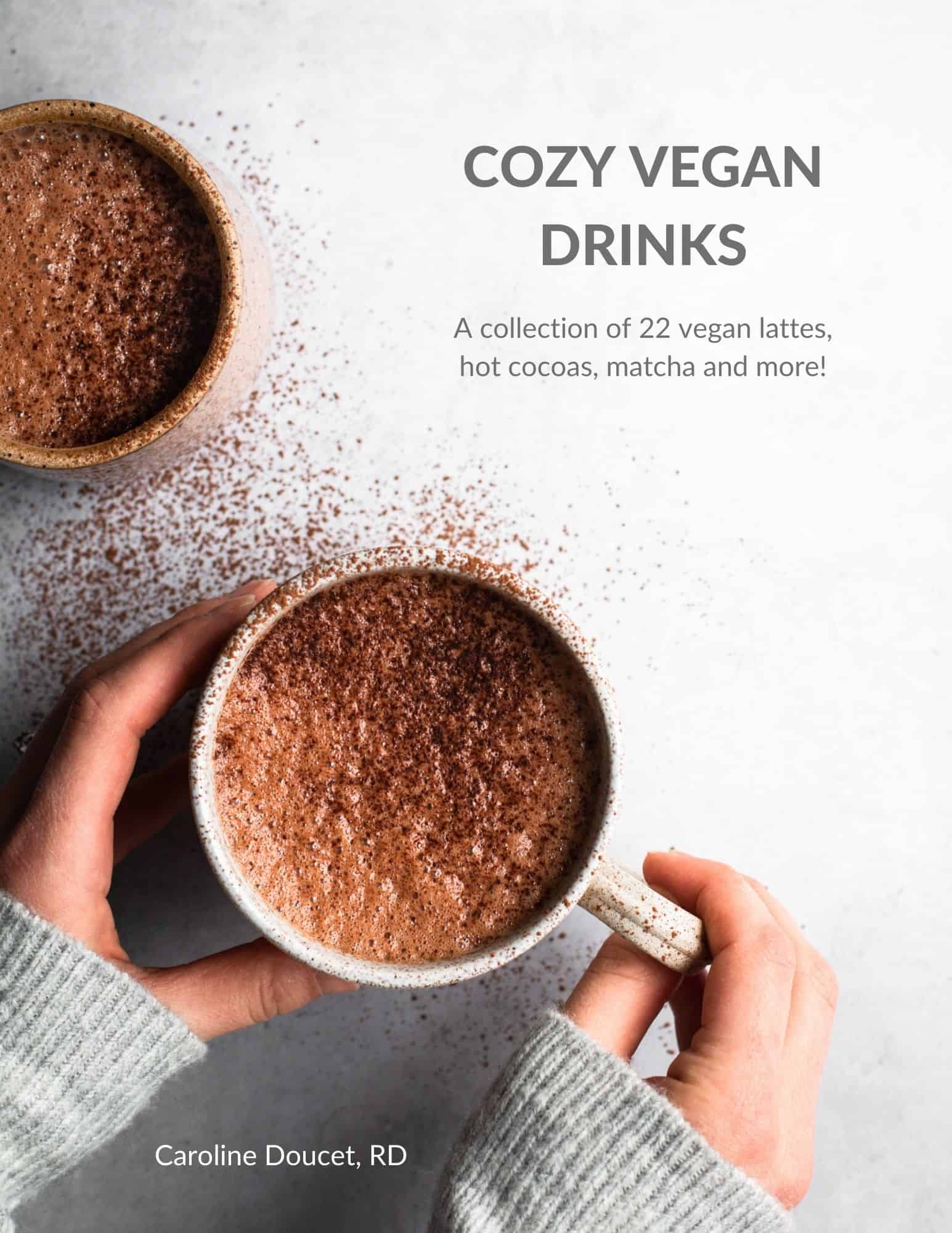
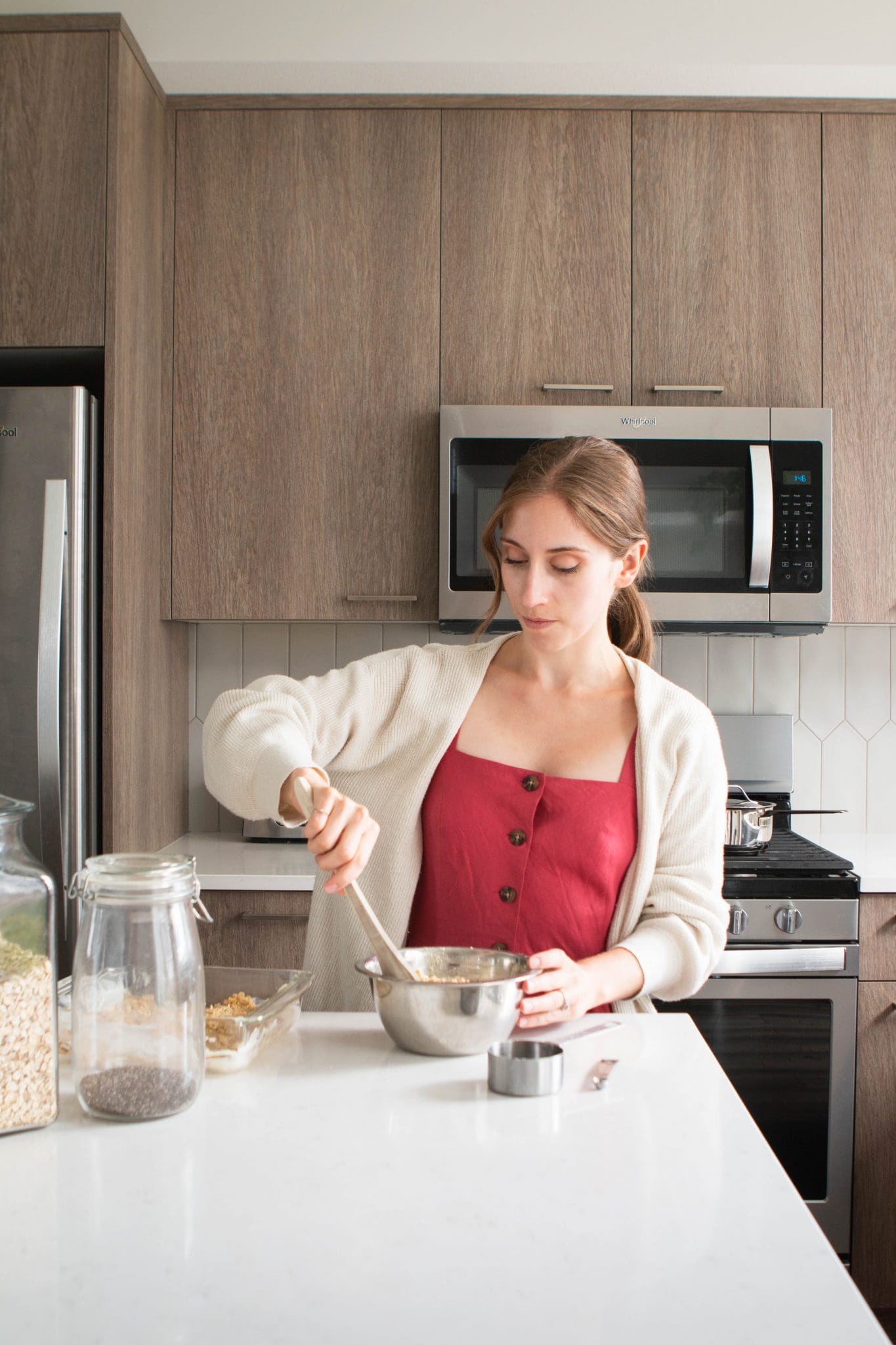
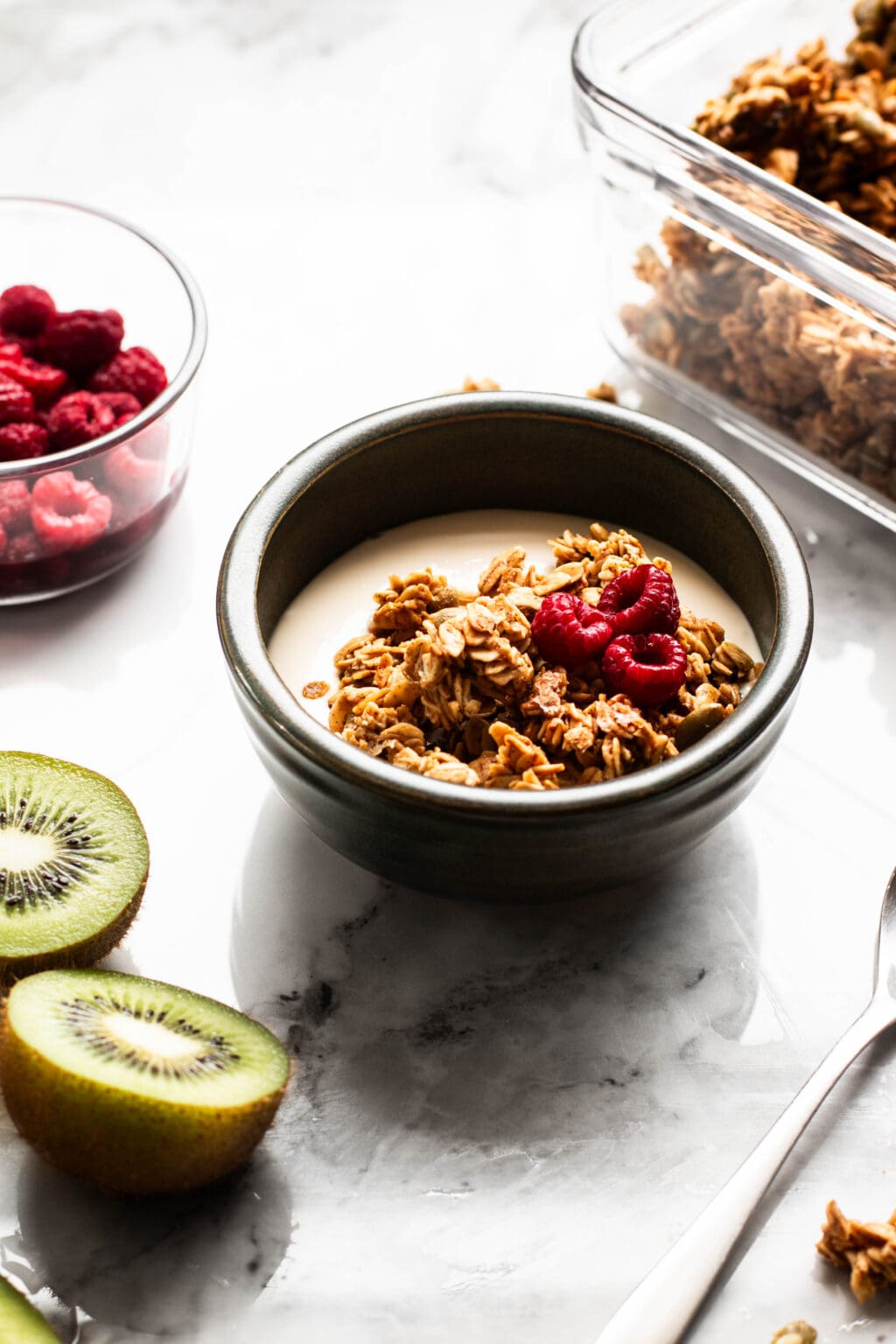
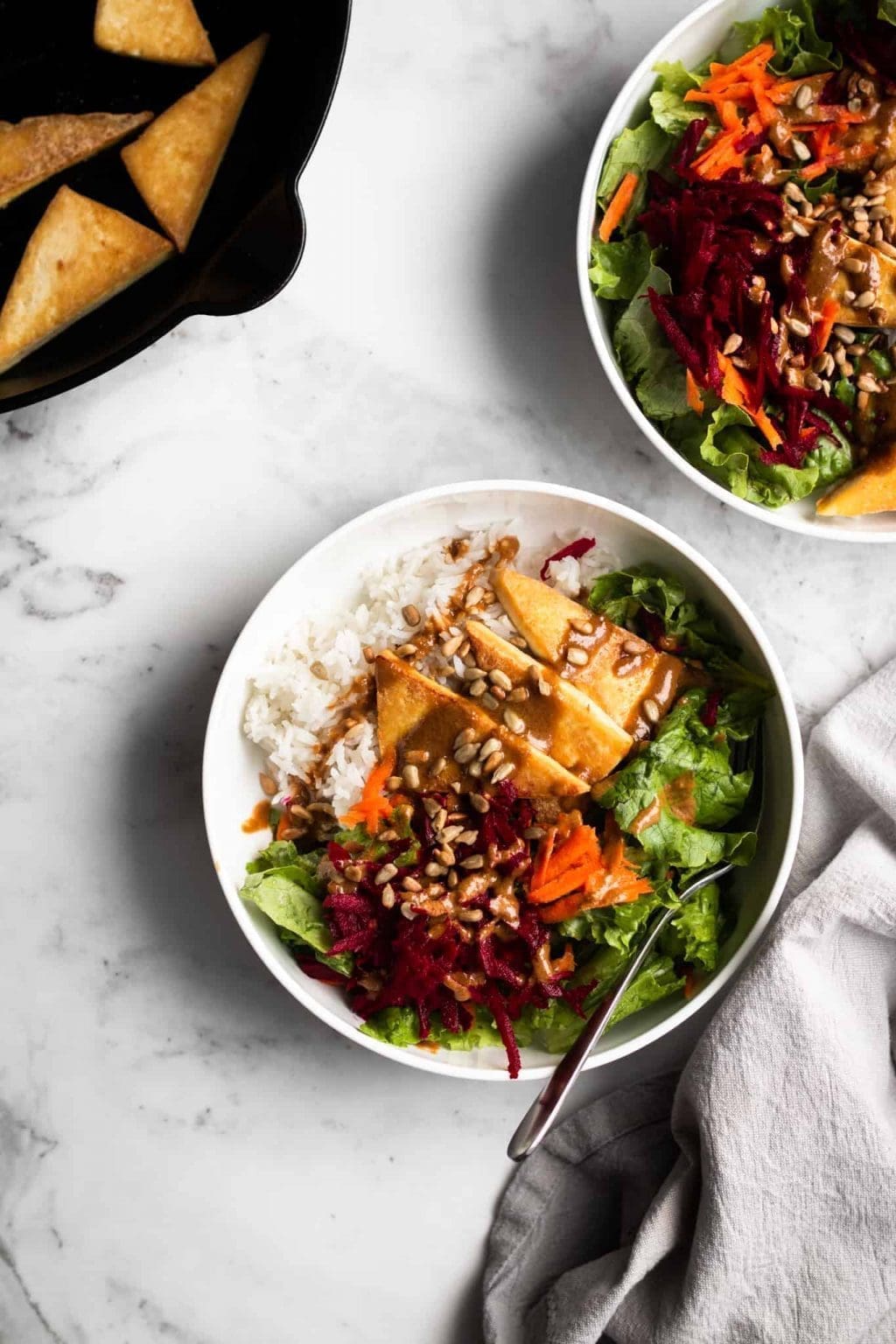
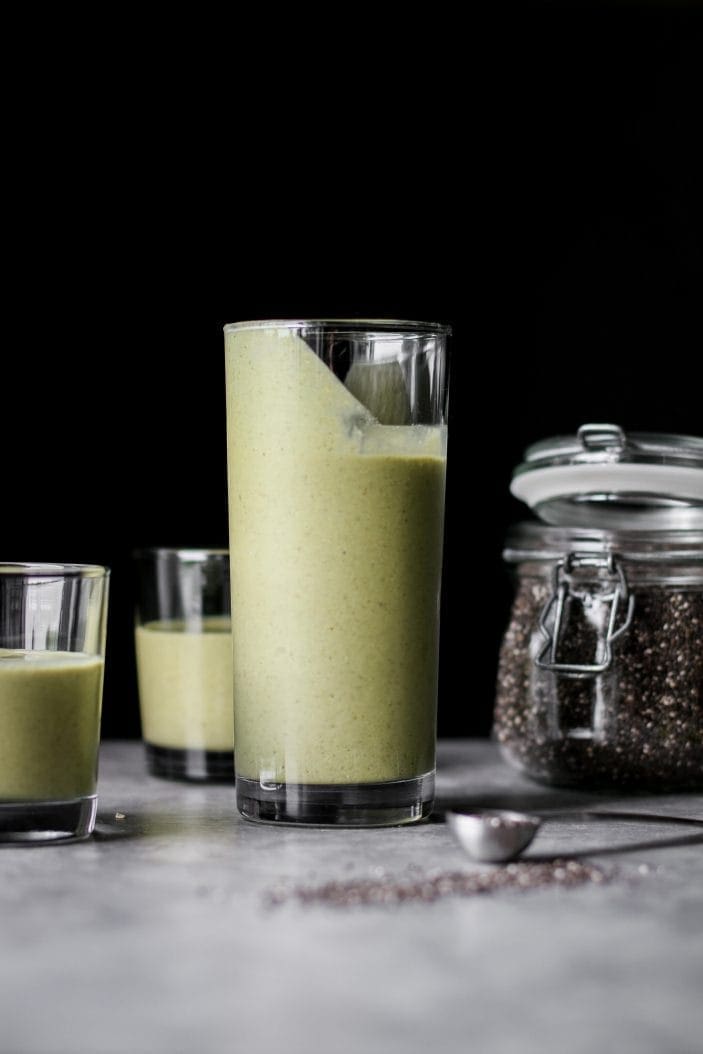
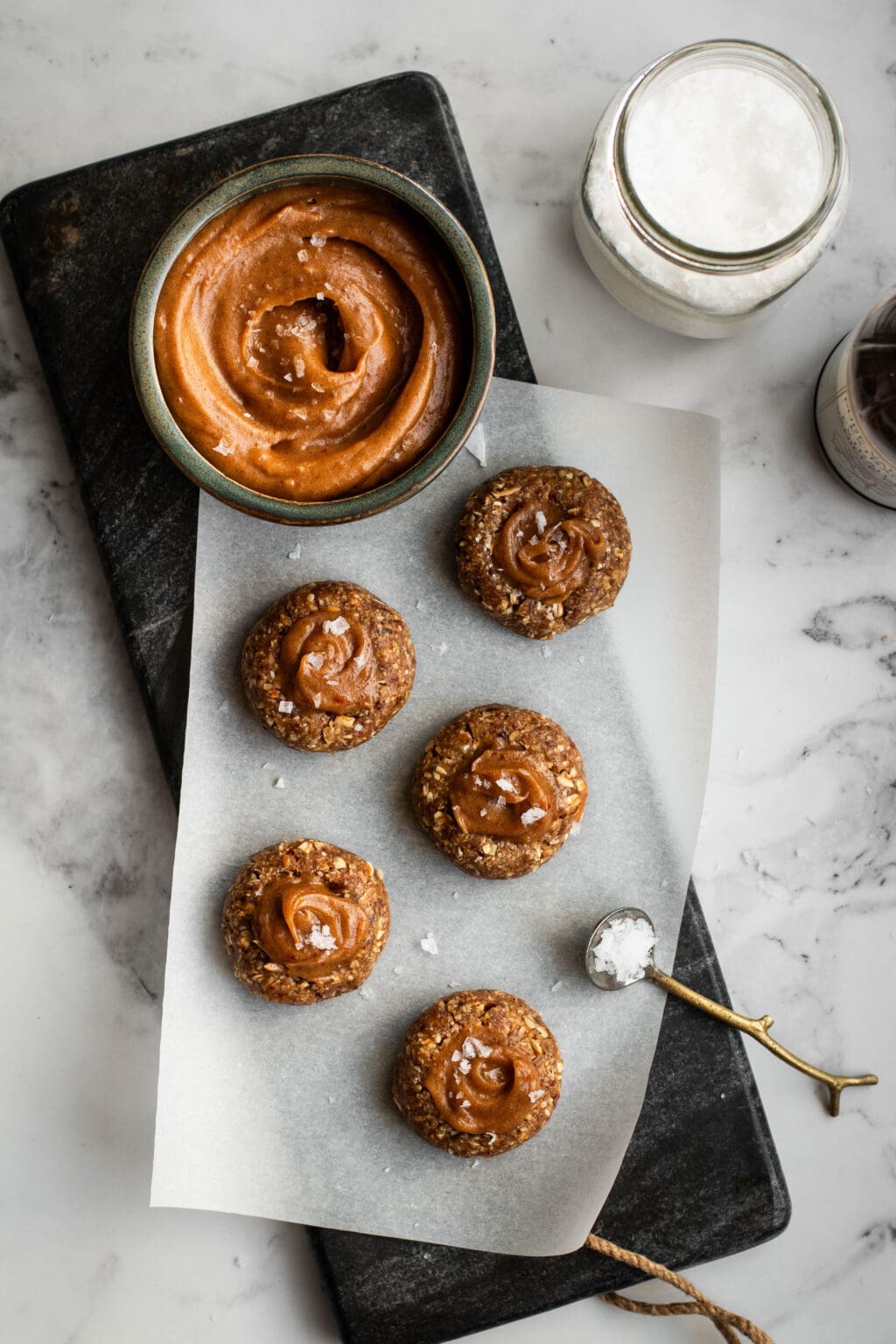
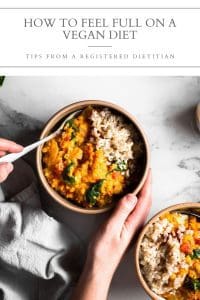
Leave a Reply